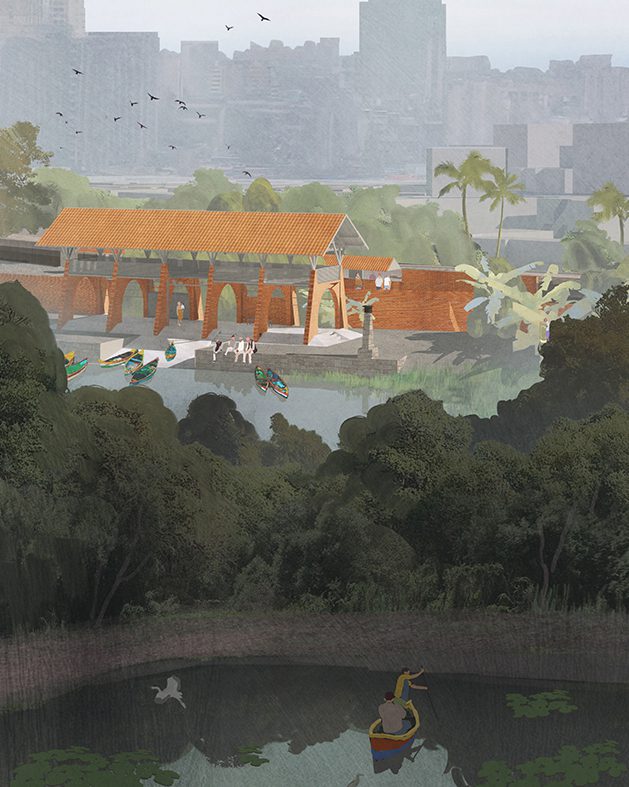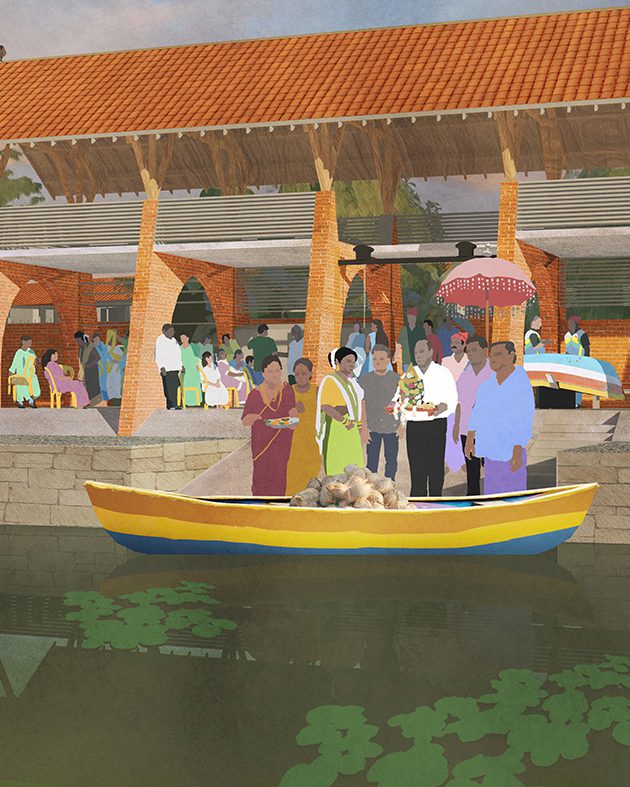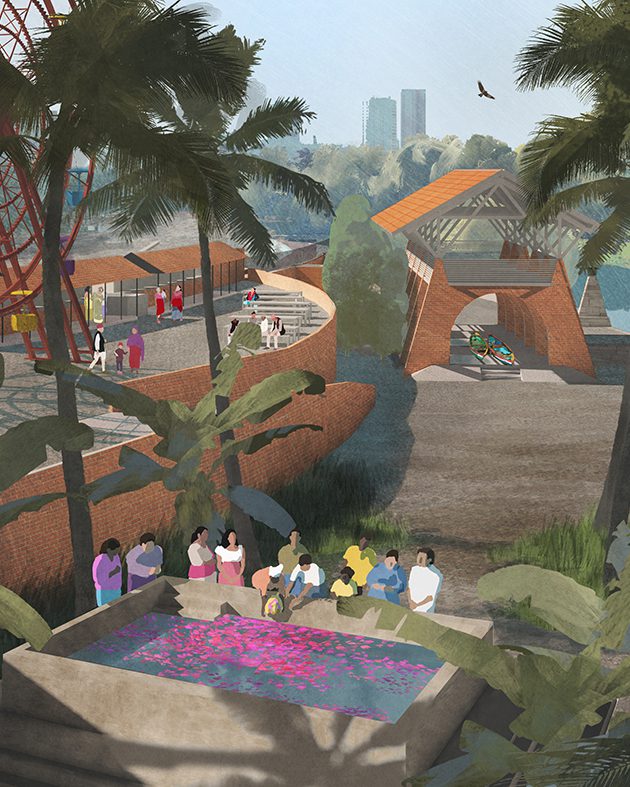Project implementation: India
Project development: India
This project is an intervention within a unique urban ecosystem - a network of fishing ponds, created and managed by members of the Koli fishing community, in a mangrove forest of the Mithi River, despite all odds.
Dharavi Koliwada, an urban fishing village of the Kolis, was once a vibrant, bustling neighbourhood surrounded by the Mithi River Estuary. Today, all of it is entrapped by the larger city. Yet, the estuarine ecosystem continues to survive in a dense, concretised urban context with vast amounts of pollution and waste choking the river.
The ponds represent an indigenous, nature-based livelihood initiative of the Koli community.
Their efforts illustrate co-dependent human-nature relationships as the key to conservation efforts. The action-based participatory project hopes to leverage the community's indigenous knowledge and restore a dwindling connection with their aqueous surroundings. The first concrete step of the project is a participatory landscape intervention on the last remaining commons within the habitat they want to restore.
The community approached urbz to help build a shared program and vision to guide the collective actions needed to achieve their restoration objectives. Together they have outlined a vision and strategy to facilitate the community who have already begun reviving ancestral aquaculture ponds. After several workshops, exhibitions, and focus group discussions to engage diverse community stakeholders from the locality, a list of challenges has been identified.
The pressing challenge is accessing these landscapes. Fisher families need unimpeded access to tend to their habitat. A small strip of common lands along the river, which used to access fishing ponds, has suffered from administrative neglect, resulting in illegal dumping and unsafe conditions. Women, elders, and children cannot safely visit the river edge where they once conducted livelihood, cultural, and recreational activities. Even fishermen risk injury due to sludge accumulation and hazardous waste.
Once safe access is secured, the community aims to raise awareness about the Mithi River's increasing pollution and urbanisation-induced deterioration. They propose to do this by organising boat tours for concerned citizens to spotlight the urban biodiversity and motivate them to take action to conserve the landscape.
The project recognises that the Kolis not only derive their livelihood from these waters but also maintain a profound spiritual relationship with this amphibious marine landscape. By supporting their traditional practices while introducing sustainable innovations, the project aims to create a model for indigenous-led urban ecological restoration that addresses both environmental degradation and community wellbeing.




